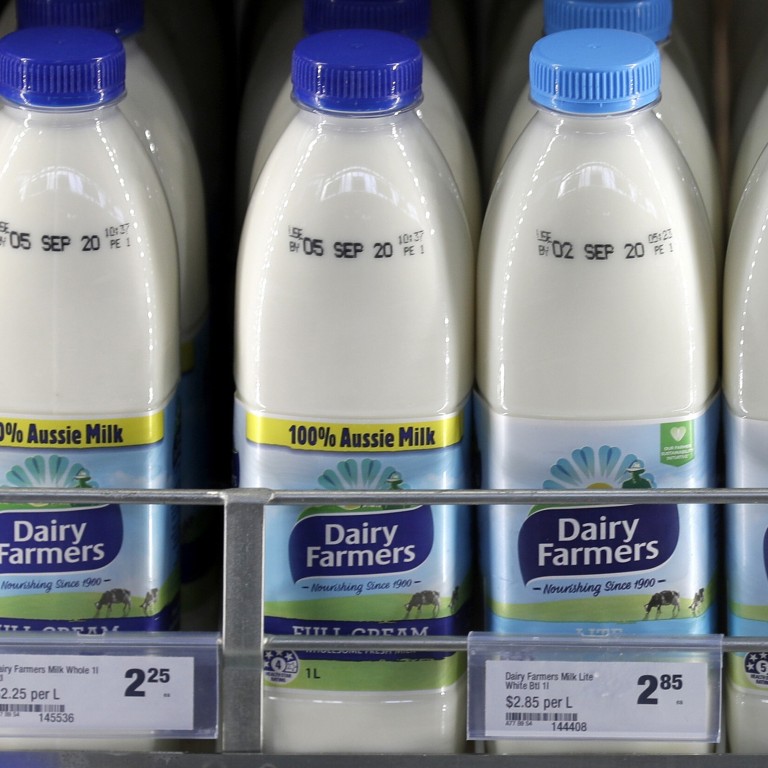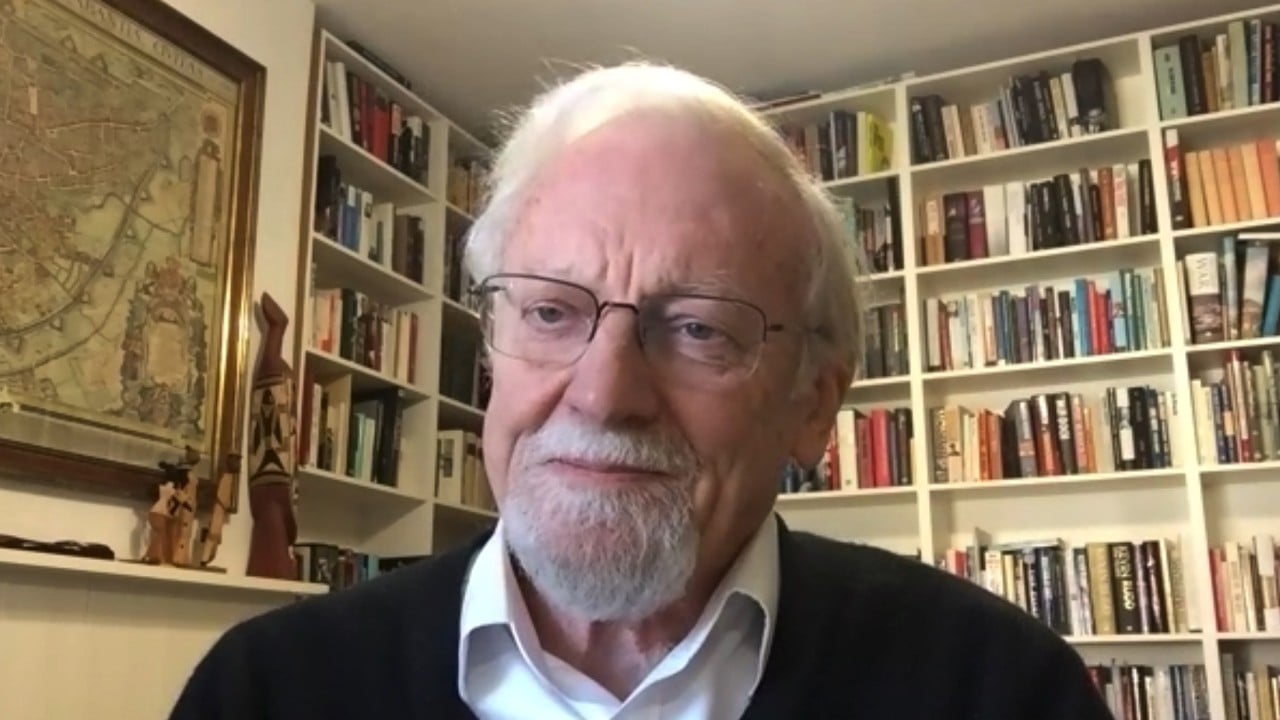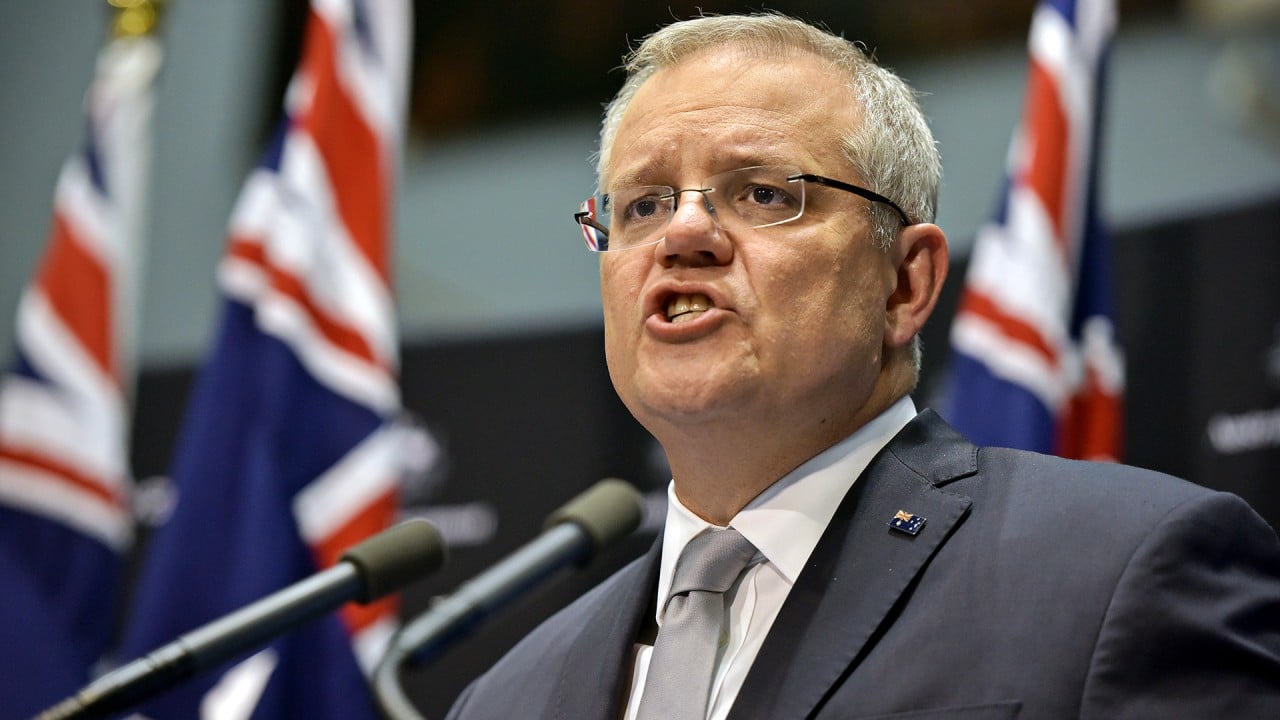
China’s Mengniu calls off deal to buy Australian drinks company after failing to get Canberra’s approval
- China Mengniu, one of China’s largest dairy firms, agreed in November to buy Lion Dairy & Drinks from Japan’s Kirin Holdings for A$600 million (US$429 million)
- News reports say Australian Treasurer Josh Frydenberg nixed the deal, contrary to advice from Foreign Investment Review Board to approve the purchase
China Mengniu Dairy will not acquire Japanese drinks company Kirin Holding’s Australia-based asset Lion Dairy & Drinks after failing to get approval from the Australian government, the latest incident in escalating trade tensions between Beijing and Canberra.
Hong-Kong listed Mengniu Dairy agreed in November to pay A$600 million (US$429 million) for Lion Dairy & Drinks, well-known locally for its Berri and Pura brands of milk as well as the Mac’s and Hopt drinks brands sold in New Zealand.
The sale of the Sydney-based company was conditional on approvals by the Australian Competition and Consumer Commission (ACCC) and the Australian Foreign Investment Review Board (FIRB). While the ACCC gave the green light in February, it was reported in local media last week that Australian Treasurer Josh Frydenberg went against the FIRB’s approval of the deal.
The Australian Treasury had also advised Frydenberg, who oversees the investment review board, to approve the deal.
On Tuesday, both Mengniu Dairy and Kirin announced they had terminated the transaction.
Given this approval has not been secured to date and is unlikely to be forthcoming at this time, regrettably the parties had agreed to terminate the agreement
“FIRB approval is a condition precedent to the agreement. Given this approval has not been secured to date and is unlikely to be forthcoming at this time, regrettably the parties had agreed to terminate the agreement,” Kirin said in a statement.
Kirin had been expected to use the proceeds of the sale to fund additional acquisitions in the craft beer space.

07:34
Australia and China cooperation too valuable for 'nonsensical' decoupling
This is not the first time an Australian treasurer has declined a Chinese deal after FIRB approval. In 2015, current prime minister and then-treasurer Scott Morrison rejected the proposed A$16 billion (US$11 billion) sale of electricity distribution company Ausgrid to a consortium composed of the State Grid Corporation of China and Hong Kong’s Cheung Kong Infrastructure Holdings due to “security concerns”.
Ausgrid was eventually sold to Australian asset manager IFM Investors and superannuation and pension fund AustralianSuper.
A year later, Morrison also blocked another Chinese company, Shanghai Pengxin Group, from buying S Kidman & Co, a cattle empire and Australia’s largest private land owner, on “national security” grounds. The company was subsequently bought by a consortium led by Australia’s richest woman, Gina Rinehart.
Earlier this year, the Australian government tightened its foreign investment policy amid fears of raids by foreign investors to acquire pandemic-hit Australian companies. Though the government said the new rules were not targeted at any country, they were suspected of being aimed at China.
At the end of July, the Australian government released new draft legislation that would implement sweeping changes to its Foreign Acquisitions and Takeovers Act for the first time since it was introduced 45 years ago.
The proposed law would cut the threshold for government approval of any foreign purchase to zero, thereby requiring FIRB consent for every deal. Previously FIRB approval was only required when a foreign deal was worth more than A$275 million or A$1.2 billion for countries with which Australia has a free-trade agreement, such as China.
This prompted a warning from China’s Ministry of Commerce in June saying Australia’s new foreign investment policy should be “fair and non-discriminatory” to all countries.
“Chinese companies investing in Australia have made tremendous contributions to the Australian economy and society,” ministry spokesman Gao Feng said at the time.

01:49
Australia suspends extradition treaty with Hong Kong, offers residency pathway for Hongkongers
Australia has traditionally relied on foreign investment and recently capital inflows from China have risen. But investments from China fell by half in 2019 from the previous year and have continued to fall this year due to the coronavirus outbreak and the increasing geopolitical strain between the two countries, a report by KPMG and the University of Sydney said earlier this year.
The US and Britain remain the top two foreign investors in Australia, owning A$984 billion and A$686 billion in Australian assets, respectively, according to the Australian Department of Foreign Affairs and Trade. China is ninth on the list of foreign investors.
While the business sector has publicly supported the government decisions to protect national security, business groups have urged the government to quickly approve low-risk investments to drive growth and create jobs.
“We’ll need to ensure that low-risk investments are streamlined and approved quickly so businesses can attract the global investment they need to get on with creating jobs at this critical time,” Jennifer Westacott, chief executive of leading industry group the Business Council of Australia, in June.

